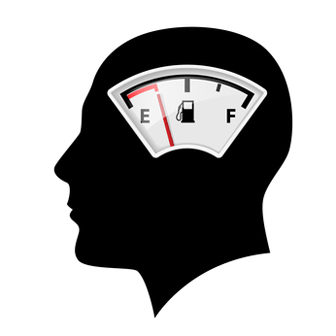IQ Test Inventor and Changes in the IQ Test Scales
Alfred Binet, the IQ test inventor, didn’t believe that IQ test scales qualify to measure your intelligence. He neither invented the term “intelligence quotient” (IQ) nor supported its numerical expression. After completing the first IQ test scale, he proclaims:
"I have not sought in these lines to sketch a method of measuring, in the physical sense of the word, but only a method of classification of individuals. The procedures which I have indicated will, if perfected, come to classify a person before or after such another person or such another series of persons; but I do not believe that one may measure one of the intellectual aptitudes in the sense that one measures length or a capacity."
Despising his forewarning, most of the quality IQ scales claim not only to measure your intelligence but also express it in a normalized number. The inventor of the IQ test believed that intelligence comes with genes but can shine with education, environment, and culture unless you are mentally impaired. He didn’t maintain that intelligence is a measurable fixed entity.
Beginning of IQ Scales
It all started in France...
Alfred Binet got his degree in law and doctorate in the natural sciences. However, he was the passionate self-taught student of psychology. He spent most of his free time in observing the mental development of his two daughters and developmentally disabled children in a local clinic.
In 1904, he was commissioned by the French government to design a method to segregate mentally subnormal children from the normal ones. The government had made education compulsory for all and wanted to provide special education to the needy children.
The IQ test inventor was assisted by another psychologist Theophile Simon, for which the system is called “Binet-Simon Intelligence Scale”. It focused on daily life problem-solving capabilities of the children in schools.
He wanted to measure the mental age (the current level of cognitive mental development) of the subjects to classify them as normal or special children. He tested comprehension, vocabulary, and memory of the examinees vis-à-vis their age-fellow.
He was aware of the illegitimate use of scale. He warned:
“The scale, properly speaking, does not permit the measure of intelligence, because intellectual qualities are not super-posable, and therefore cannot be measured as linear surfaces are measured.”
IQ Tests in Germany
William Stern, a German psychologist, translated and adopted the “Binet-Simon Intelligence Scale” in Germany. However, he observed that mental age of a normal child could be different from his age-fellows. He said when the mental age of a child is divided by his chronological age, the result shall express the ratio of his intelligence in his age group.
However, he was consonant with Alfred Binet that IQ test scales can’t measure human intelligence. He states:
“No series of tests, however skillfully selected it may be, does reach the innate intellectual endowment, stripped of all complications, but rather this endowment in conjunction with all influences to which the examinee has been subjected up to the moment of testing.”

IQ Tests in the United States
H.H. Goddard, the father of American Eugenics (A movement to breed only the ‘intelligent’ (right) people and curtail reproduction of ‘idiots’...), translated and adopted Binet-Simon IQ test scale in the United States. He was greatly influenced by Darwin’s evolution theory and believed intelligence a fixed measurable entity which people get by their birth. He used IQ tests scales to prove the validity of his philosophy.
Another Eugenic, Lewis Terman invented the term “intelligence quotient” (IQ) and normalized Stern’s intelligence ratio by multiplying it by 100.
IQ= (M.A/C.A)X100
IQ Tests in World War-I and Afterwards...
With the dawn of World War-I, the United States required a lot number of peoples to fill different vacancies. However, there was no quick, systematic method to screen candidates before placing them in critical positions. The government asked Lewis Terman and Robert M. Yerkes to build two IQ test scales to screen literate and illiterate candidates for the available posts.
The scales were built within the next six months. Before World War-I ended, more than two million people had gone through these IQ test scales. Later on, these psychologists developed National Intelligence Test in 1920 and Scholastic Aptitude Test (SAT) in 1926. These IQ test scales were translated, adapted and standardized in other countries with much more impact than Binet-Simon scale alone could make.
The use of IQ test scales has been increasing in the 21st century, in education, career, and clinics. However, the testers should get rid of Eugenics philosophy to make them a useful tool. They must not forget what Alfred Binet had suggested:
“Some recent thinkers…(have claimed) that an individual’s intelligence is a fixed quantity, a quantity that can’t be increased. We must protest and react against this brutal pessimism; we must try to demonstrate that it is founded on nothing.” (Quoted in "The Mis-measure of Man," Gould)
Practice with Free IQ Tests
Share Your Thoughts!
We find value in differences between learning, interpreting and overall opinions. Please share your thoughts freely about this topic, but always remain respectful. You can preview and edit on the next page before your submission is sent in. You will also be informed about this site's privacy policies. Thank you for your contribution.
Recent Articles
-
What type of test did I take
Apr 04, 22 04:09 AM
I was given a psychological test years ago, but wasn’t told what it was for. The rating used a bell curve and my score fell in the above average not yet -
ﹰﹰﹰﹰﹰﹰﹰGOOD
Aug 13, 21 03:20 PM
Since the enneagram test helps people to understand their strength and weaknessess. And helps them remove their weaknesses then the test is good -
Knowing the inner me
Aug 13, 21 03:17 PM
Sometimes I ask myself that is this my behaviour or not? Because I am really shy and I lack confidence, I find it hard to socialize with other people.I
